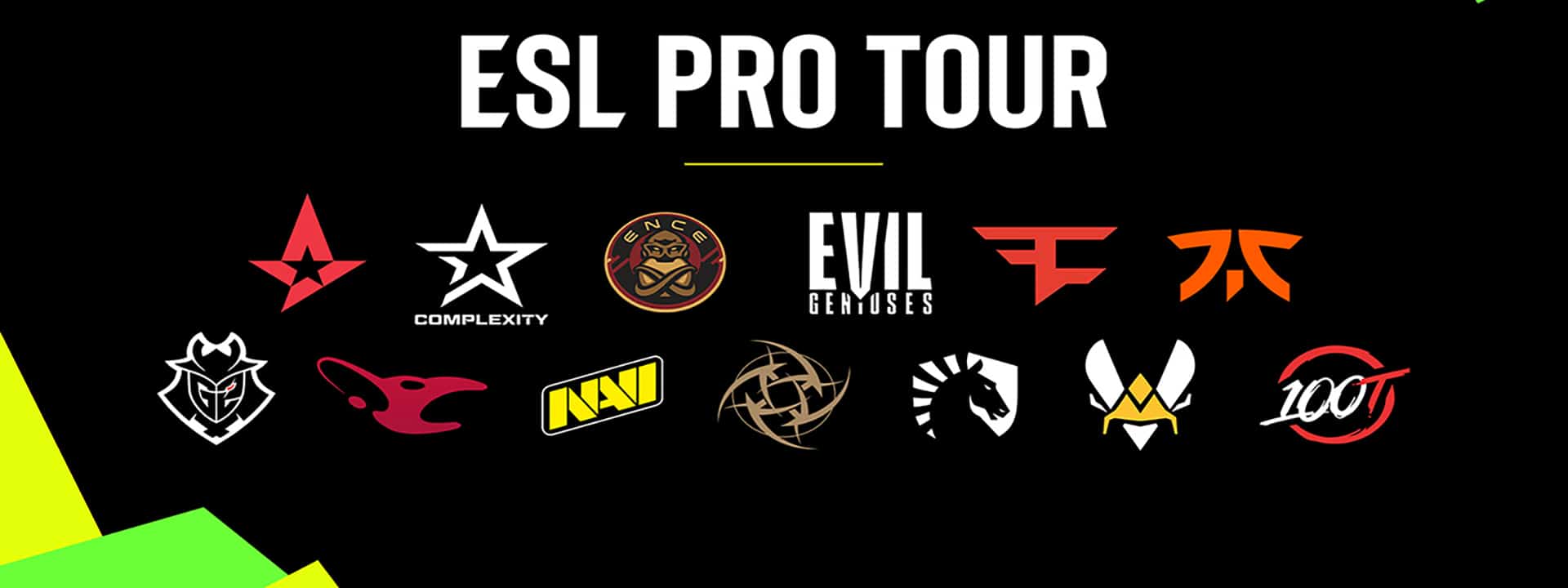The ESL has won the battle of the Counter-Strike leagues. With the “Louvre Agreement”, the partner teams get many advantages, but they are also taken into account. In the future, a fixed transfer period will also be established.
Not only the ESL benefits from binding the 13 teams to itself, but also the contractual partners enjoy some advantages over the other teams in the league, which were laid down in the so-called Louvre Agreement.
With this agreement, ESL undertakes to pay the partner teams 25 per cent of the revenue to the teams in addition to the regular prize money. After deduction of the costs for the league, a further 65 percent of the profit is to be paid out to the partners. For other events of the ESL Pro Tour, the partners will also receive a 5 per cent share of the income, and after deduction of the operating costs, a further 10 per cent will be paid out.
The NEW truly global #ESLProLeague
is here! Season 11 is going to be
better than ever:✅ FULLY STACKED – 24 incredible
teams.
✅ PURE COMPETITION – More
exciting than ever before.
✅ NO MORE EXCUSES – Only the
absolute best can win.https://t.co/1eaUhUn39D pic.twitter.com/jBOXncQmAn— ESL Counter-Strike (@ESLCS) February 18, 2020
In addition, the players receive 15 percent of the profit share from the 13 partner teams. These special payments are to be paid in addition to the regular salary and prize money. Furthermore, the agreement between DreamHack/ESL and the players’ association CSPPA, which is represented by players Chris “chrisJ” de Jong and Andreas “Xyp9x” Højsleth, among others, still applies. This agreement aims to establish guidelines and standards for players and organisers. This includes, for example, the assumption of board and lodging by the organizer for up to seven team members.
ESL’s transfer market approaches classic sport
Besides a new format, there are also new rules for the EPL. Above all, ESL is relying on a regulated transfer market in the agreement and limits teams to a maximum of two transfers during the season.
In future, there will be a fixed transfer window for transfers, which will open a few days after finals and close 21 days before the start of the new season. In exceptional cases, transfers are still possible five days before the start of the season. Outside the transfer period, teams may bring a maximum of two players on board, as long as they have not already played for another team.
These new regulations are similar to the approach in the German Bundesliga, where there are also fixed transfer windows. In summer 2019, the transfer period was open from 1 July to 2 September.
However, the league, i.e. the ESL together with the 13 partners, can authorise “emergency transfers” or prohibit transfers in exceptional cases if they violate rules and standards.
We’re thrilled to have these beautiful faces as our talent for ESL Pro League 11 Season & the Denver Finals!
🎤: @stunna | @SPUNJ | @henrygcsgo | @machinegg | @daveycsgo | @JustHarryGG | @HugoooTV | @getfrank | @BanKseSports pic.twitter.com/I0qLNsjr2R
— ESL Counter-Strike (@ESLCS) February 19, 2020
ESL and teams in duty
In addition to the new league rules, the teams and the ESL have made other commitments. Among other things, the teams have contractually agreed to play the Pro League and Pro Tour events with their best lineups. Furthermore, PR appointments such as interviews and fan meetings have to be taken care of.
The ESL, for its part, has committed itself to providing the highest possible production standards for the Pro League and Pro Tour, as well as to optimizing opportunities for marketing the league. In addition, the ESL must pay for all costs and possible losses of the ESL Pro League.
A clear victory for the ESL and CS scene
With the contract between the ESL and the 13 teams there is a clear winner in the battle with the Flashpoint league, after all, the best teams are in the Pro League.
At the same time the contract is also an important step towards professionalization in CS:GO. Because with the establishment of fixed transfer periods, the professional scene should become much more structured and less plagued by changes during the season.
There could hardly have been a clearer victory in the battle of the leagues. Only three teams among the top 20 teams in the world will not play in the ESL Pro League (EPL) in the coming season. One of the top 20 teams not participating in the EPL is MIBR, the other two teams are Cloud9 and MAD Lions. All three are currently not part of the world elite.
Among the 13 organizations that have partnered with ESL are the current eleven best teams along with Complexity and Ninjas in pyjamas. With this contract, ESL secures the participation of the 13 teams for the next few years, so they do not have to fear losing the battle with their competitor Flashpoint afterwards.


